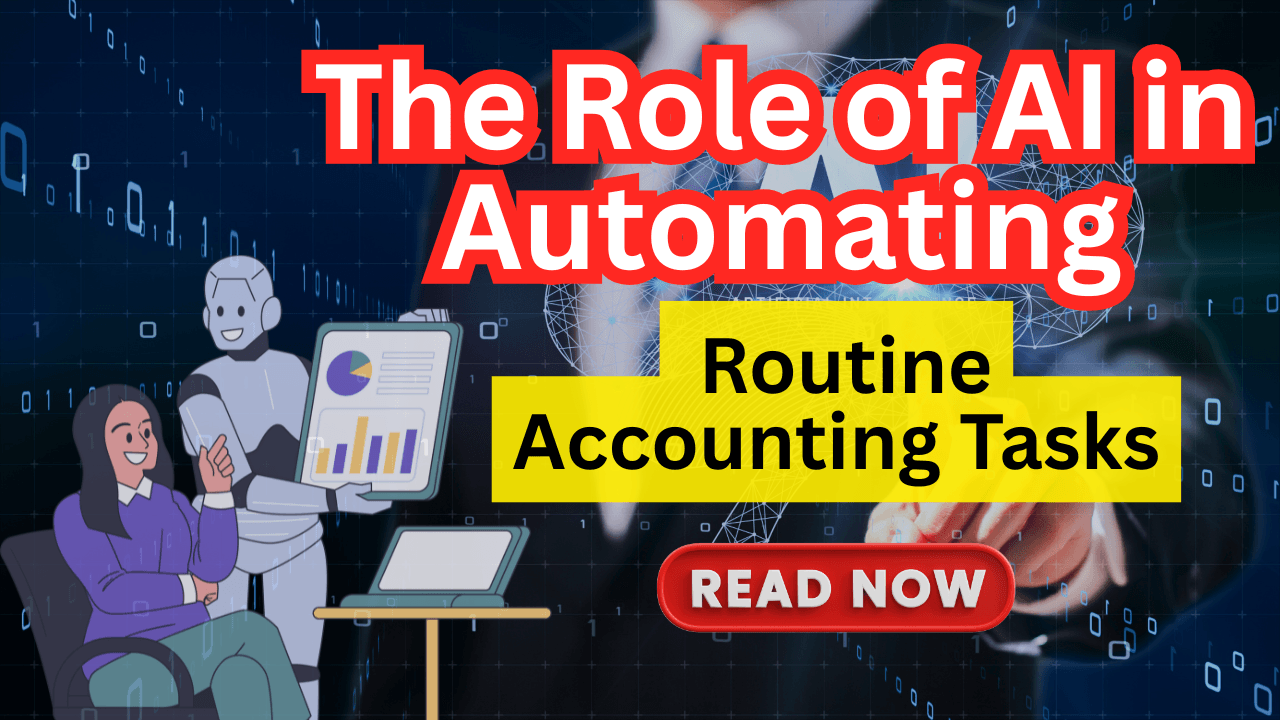The Role of AI in Automating Routine Accounting Tasks
Artificial Intelligence (AI) is revolutionizing the accounting industry by automating routine tasks such as data entry, transaction categorization, and reconciliations. This transformation enhances accuracy, reduces manual errors, and allows accountants to focus on strategic activities that add greater value to their organizations.
Data Entry Automation
Manual data entry is time-consuming and prone to errors. AI-powered solutions can automatically extract and input data from various financial documents, including invoices and receipts, minimizing human intervention. For instance, Booke AI utilizes AI-driven Robotic Process Automation (RPA) and Generative AI to automate reconciliation and categorization, saving accountants hours of manual work. citeturn0search8
Transaction Categorization
Accurate transaction categorization is crucial for financial reporting and analysis. AI algorithms analyze transaction patterns and context to automatically assign appropriate categories to each entry. This not only accelerates the bookkeeping process but also ensures consistency and accuracy. QuickBooks AI, for example, offers smart expense tracking with receipt scanning and automated categorization, streamlining the bookkeeping process. citeturn0search0
Bank Reconciliations
Reconciling bank statements with internal records is a critical yet labor-intensive task. AI simplifies this process by matching transactions across different data sources, identifying discrepancies, and suggesting corrections. FloQast AI Transaction Matching automates the matching between the general ledger and bank or credit card processors, reducing manual workload and minimizing errors. citeturn0search3
Benefits of AI-Driven Automation in Accounting
- Enhanced Accuracy: AI reduces the risk of human errors associated with manual data entry and calculations, leading to more reliable financial records.
- Time Efficiency: Automating routine tasks frees up valuable time for accountants, allowing them to focus on strategic planning and advisory roles.
- Real-Time Financial Insights: AI enables continuous data reconciliation, providing up-to-date financial information that supports timely decision-making. citeturn0search5
- Cost Savings: By streamlining processes and reducing the need for extensive manual labor, AI contributes to significant cost reductions in accounting operations.
Challenges and Considerations
While the benefits are substantial, integrating AI into accounting practices comes with challenges:
- Implementation Costs: Initial investment in AI technology and training can be significant.
- Data Security: Ensuring the confidentiality and integrity of financial data processed by AI systems is paramount.
- Change Management: Transitioning to AI-driven processes requires careful change management to address resistance and ensure a smooth adoption.
Conclusion
The adoption of AI in accounting is transforming the profession by automating routine tasks, enhancing accuracy, and providing real-time insights. As AI technology continues to evolve, its integration into accounting practices will become increasingly essential for firms aiming to enhance efficiency and deliver higher-value services to clients.

